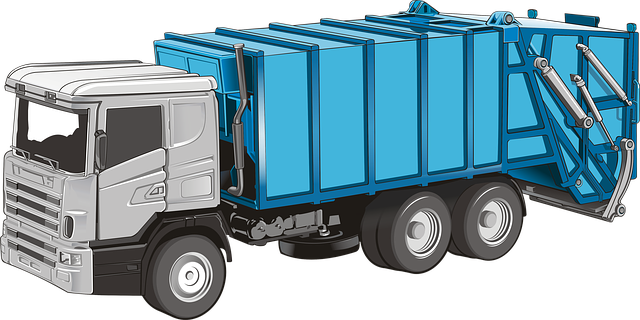Small trucking businesses face challenges securing affordable, comprehensive insurance to protect against vehicle damage, weather events, and cargo loss. Key strategies involve focusing on affordable rates, comprehensive liability for goods in transit, and physical damage coverage for vehicles. This guide outlines essential steps for startups to assess fleet needs, compare quotes, and customize coverages, ensuring protection without compromising operational margins. By targeting specific insurance types—liability, cargo, and physical damage—new trucking operations can navigate the process effectively and access tailored policies at competitive rates.
In the dynamic world of trucking, new businesses face unique challenges in securing adequate insurance. This article guides you through the intricacies of customizing policies to match the needs of small and growing trucking operations. From understanding the specific risks to accessing affordable options, we provide a comprehensive roadmap for startups entering this competitive sector. Learn about tailored insurance solutions, key coverage areas including liability, cargo, and physical damage, and discover how to navigate the market for the best rates on trucking insurance for your new fleet.
Understanding the Unique Challenges of Small and Growing Trucking Businesses

Small and growing trucking businesses face distinct challenges when it comes to insurance. As startups, they often operate with tight margins, making it crucial to secure affordable trucking insurance that doesn’t break the bank while still providing adequate coverage. The need for comprehensive protection is heightened by the risks inherent in the industry, such as vehicle damage from accidents or weather events, and liability for cargo loss or damage.
These new fleets typically lack the established risk profile of larger, more seasoned operations, which can make it difficult to find suitable insurance options at competitive rates. Careful consideration must be given to ensuring coverage for physical damage to vehicles, as well as cargo protection, including liability insurance for any goods being transported. Additionally, navigating the complex landscape of trucking insurance regulations and policies can be a significant hurdle for these businesses.
Tailoring Insurance Policies for Startups: A Step-by-Step Guide

When starting a new trucking business, securing the right insurance is non-negotiable. For startups, this process often involves tailoring policies to fit specific needs and budget constraints. Here’s a step-by-step guide for navigating affordable trucking insurance options:
1. Assess Your Fleet and Operations: Begin by understanding your fleet size, types of vehicles, and operational scope. This information guides the selection of suitable coverage, such as physical damage insurance for trucks and cargo coverage for valuable freight.
2. Identify Risk Exposure: Startups face unique risks, from driver liability to potential cargo losses. Conduct a thorough risk assessment to identify these hazards and determine appropriate liability insurance levels. Remember, comprehensive coverage like general liability and cargo protection can be crucial for new businesses.
3. Compare Quotes and Coverage: Research various insurance providers specializing in trucking insurance for new businesses. Request quotes tailored to your fleet’s specifics. Compare not only costs but also policy details, ensuring you understand the terms and limitations of each plan.
4. Prioritize Key Coverages: Prioritize essential coverages such as liability insurance, which protects against claims related to accidents or injuries caused by your trucking operations. Also, consider physical damage insurance to safeguard against truck and cargo losses.
5. Customize According to Needs: Many insurers offer flexible policy customization options for small businesses. Add endorsements or riders to tailor the coverage to specific requirements, like specialized equipment or unique shipping practices.
6. Review and Adjust Regularly: As your business grows and risks evolve, regularly review your insurance policies. Re-evaluate coverage limits, ensure they align with current fleet size and operations, and make adjustments as necessary to maintain adequate protection.
Key Coverage Areas for New Fleets: Liability, Cargo, and Physical Damage Insurance

When starting a new trucking operation, ensuring the right coverage is in place is paramount for any small business owner’s peace of mind. New fleets, especially, require comprehensive insurance options tailored to their unique needs and potential risks. Key areas of focus include liability insurance, which protects against claims related to accidents or damages caused during operations; cargo coverage, essential for safeguarding the value of transported goods; and physical damage insurance, designed to mitigate costs associated with repairing or replacing company vehicles in case of mishaps.
For entrepreneurs in the trucking industry, affording adequate startup trucking coverage without breaking the bank is a common concern. Fortunately, customized policies offer affordable solutions without compromising on quality. By addressing these core coverage areas, small businesses can navigate the road ahead with confidence, knowing their investments and operations are secured against unforeseen circumstances.
Accessing Affordable Trucking Insurance Options for Small Businesses

Starting a new business, especially in the trucking industry, comes with unique challenges when it comes to insurance. New businesses often struggle to find affordable trucking insurance options that offer adequate coverage for their growing fleets. However, customizing policies is key to meeting these startups’ specific needs. Many insurers now recognize the importance of catering to small businesses and offer tailored packages to help them get on their feet.
One area of focus for new trucking operations is obtaining liability insurance to protect against potential cargo losses or damages during transportation. Additionally, physical damage insurance can safeguard against unforeseen incidents like accidents or natural disasters that might impact the fleet. By carefully evaluating their coverage needs and shopping around for quotes, young businesses can secure competitive rates on comprehensive truck insurance, ensuring they’re protected without breaking the bank.
Customizing policies to meet the specific needs of small and growing trucking businesses is essential for their success and longevity. By understanding the unique challenges they face, as outlined in this article, entrepreneurs can effectively tailor their insurance coverage using a step-by-step guide. This ensures access to affordable options like liability, cargo, and physical damage insurance, vital components of startup trucking coverage. Embracing these strategies empowers new fleets to navigate the competitive landscape with confidence, fostering growth and prosperity in the dynamic world of trucking.
